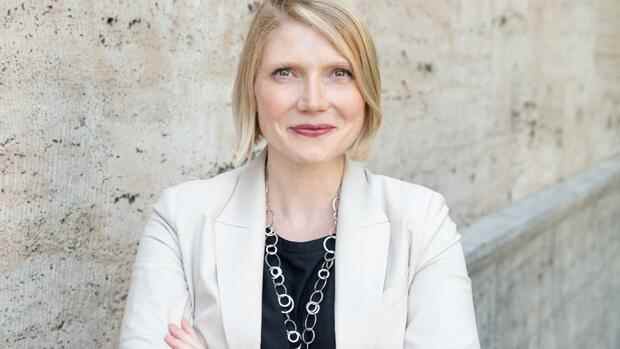The growing tensions in the West with Russia and China and the close ties between the two autocratic states pose major challenges for Europe. The answer is for the EU and the US to move even closer together, says the German-American political scientist Cathryn Clüver Ashbrook, who has headed the German Council on Foreign Relations since June 2021.
China backs Russia in the Ukraine conflict. Should the West fear a superpower from both?
Russia on the side of the economic power China – that is a very dangerous combination. The relationship between Russia and China is interesting: They are not natural allies, but they are united by the goal of weakening the West in the long term. On the one hand the Chinese with a very long-term strategy. On the other hand the Russians with a tactical talent. But they coordinate: This is also shown by the planned summit meeting between Vladimir Putin and Xi Jinping to open the Winter Olympics – the first personal meeting of the two heads of state in two years. The timing is not random.
Why not?
Both sides have created facts in recent months: joint military exercises, coordination in trade and technology policy, on the Arctic issue, where territorial issues are at stake. These are strong, worrying signals for the West, regardless of ideologies.
China backs Russia in the Ukraine conflict.
(Photo: AP)
What does that mean for the Ukraine crisis?
The Chinese are watching Mr Putin’s game on the Russian-Ukrainian border very closely. Because the West’s reaction also sheds light on China’s questions: How much can we provoke on the Taiwan issue? What can we afford there? Is the west closed? By colluding, both states can become a fundamental threat to the western allies.
Top jobs of the day
Find the best jobs now and
be notified by email.
Next week Olaf Scholz will go to Joe Biden. How does the USA see the German position in the Ukraine crisis?
The US wants the German political elite to agree on a strict line. They need this unity as reinforcement, as a sign that the western phalanx is holding. There were some aberrations that gave the impression that the Nord Stream 2 agreement could be extricated from the conflict.
Do you also mean statements by the Federal Chancellor?
Yes. Any perceived indecisiveness on the issue of removing Nord Stream 2 from sanctions plans would significantly worsen the Western position. In this situation you should be able to put all diplomatic tools on the table to show that you mean business. If fickleness is perceived from one side, this is not a sign of strength, consistency and agreement. It was also unfortunate that it was semi-publicly described as unlikely to throw Russia out of the Swift payment system as a sanction. This unsettles and disappoints the Americans very much.
Ashbrook advises Olaf Scholz to keep all diplomatic options open.
(Photo: dpa)
Do you see the West in a better diplomatic position towards China than towards Russia?
Meanwhile, yes, since Xi Jinping has just pushed ahead with his economic plans with Made in China 2025 and the implementation of the Belt and Road Initiative so quickly that the system rivalry is clearly visible. In response, the new federal government has stipulated in the coalition agreement that it should close ranks with the USA and take a more self-confident stance towards China. The economy is also rethinking here: In 2019 and last year, the BDI positioned itself more clearly than ever. The great weakness of the West is that we don’t think strategically in terms of time, like the Chinese do.
But doesn’t the West’s action against human rights violations in Xinjiang seem helpless – if, for example, VW continues to produce there?
It doesn’t help if production continues in areas where human rights are systematically violated. So it’s good that the EU has passed the 300 billion euro Global Gateway program for development in China’s neighboring countries and is thus showing alternatives for production elsewhere. The EU must involve the Americans in these planned major infrastructure projects in order to take the wind out of China’s Silk Road project. This has to be quick. Together we have to prove that our democracies are more innovative, faster, more functional and ultimately better. We have to show that our companies can be innovative and produce at least as well elsewhere as in Xinjiang, for example.
What else can the West do?
The issues of investment protection and export controls in problematic Chinese provinces must be strengthened. At the end of the democracy summit here in December, the Americans approached the Europeans with a concrete offer of a contract on export controls – Germany has not yet signed it. We also have to tackle the things that we have slept through for years: regulations and standard-setting in the technology sector. So far, the EU has not done enough strategic work to push China back.
More: Diplomat with a clear edge: How Ischinger’s successor criticizes the traffic light policy in Ukraine
